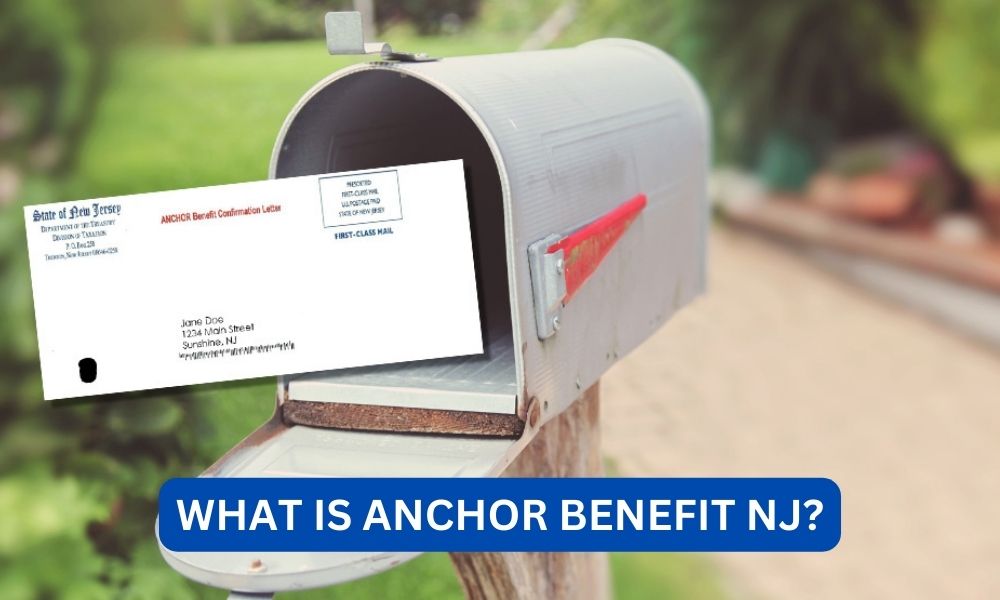Anchor Benefit NJ is a state-funded program that provides financial assistance to eligible individuals and families in New Jersey. It is designed to help low-income households meet their basic needs and improve their quality of life. The program offers a range of benefits, including cash assistance, food stamps, and medical coverage, to eligible individuals and families.
The Anchor Benefit NJ program is administered by the New Jersey Department of Human Services (DHS) and is funded through a combination of state and federal funds. It is part of the larger safety net system in the state that aims to support vulnerable populations and reduce poverty.
Contents
History of Anchor Benefit NJ
The Anchor Benefit NJ program was established in 1997 as part of the federal welfare reform legislation, known as the Personal Responsibility and Work Opportunity Reconciliation Act (PRWORA). This legislation replaced the previous welfare system, Aid to Families with Dependent Children (AFDC), with a new program called Temporary Assistance for Needy Families (TANF).
Under TANF, states were given more flexibility in designing and implementing their own welfare programs, as long as they met certain federal requirements. In New Jersey, the TANF program was renamed Anchor Benefit NJ and was designed to provide a safety net for low-income families while also promoting self-sufficiency through work and other activities.
Read:What benefits do immigrants get?Since its inception, Anchor Benefit NJ has undergone several changes and reforms to better serve the needs of its recipients. In 2007, the program was expanded to include a new component called Work First New Jersey, which focuses on helping recipients find and maintain employment. In 2014, the program was further expanded to include additional services and supports, such as child care assistance and job training.
Eligibility for Anchor Benefit NJ
To be eligible for Anchor Benefit NJ, individuals and families must meet certain income and asset requirements. These requirements vary depending on the size and composition of the household. Generally, households must have a gross income that is at or below 185% of the federal poverty level to qualify for benefits.
In addition to income requirements, applicants must also meet certain citizenship and residency requirements. They must be U.S. citizens or qualified non-citizens and must be residents of New Jersey. They must also meet certain work requirements, which may include participating in job training or employment activities.
It is important to note that eligibility for Anchor Benefit NJ is not limited to families with children. Single adults without children may also qualify for benefits if they meet the eligibility criteria.
Read:How to be friends with benefits?Benefits Offered by Anchor Benefit NJ
Anchor Benefit NJ offers a range of benefits to eligible individuals and families. These benefits are designed to help recipients meet their basic needs and improve their overall well-being. The main benefits offered by the program include:
- Cash Assistance: Recipients may receive cash assistance to help cover their basic living expenses, such as rent, utilities, and food. The amount of cash assistance received depends on the size and composition of the household.
- Food Stamps: Recipients may also receive food stamps, also known as Supplemental Nutrition Assistance Program (SNAP) benefits, to help purchase food for their household. The amount of food stamps received is based on the household’s income and size.
- Medical Coverage: Eligible individuals and families may receive medical coverage through the state’s Medicaid program. This coverage includes doctor visits, hospital stays, prescription drugs, and other medical services.
- Child Care Assistance: Recipients who are working or participating in job training may receive assistance with child care costs. This allows parents to work or attend training without worrying about the cost of child care.
- Job Training and Employment Services: The Work First New Jersey component of Anchor Benefit NJ provides recipients with job training and employment services to help them find and maintain employment. This includes job search assistance, resume building, and skills training.
Impact of Anchor Benefit NJ
Since its inception, Anchor Benefit NJ has had a significant impact on the lives of low-income individuals and families in New Jersey. The program has helped thousands of families meet their basic needs and improve their financial stability. Here are some key statistics that highlight the impact of Anchor Benefit NJ:
Read:When will i receive my tanf benefits- In 2019, Anchor Benefit NJ provided cash assistance to over 100,000 households in New Jersey.
- Over 1 million individuals received food stamps through the program in 2019.
- Over 1.5 million individuals received medical coverage through Anchor Benefit NJ in 2019.
- Since the implementation of Work First New Jersey in 2007, the number of TANF recipients who are employed has increased by 50%.
These statistics show that Anchor Benefit NJ has been successful in providing much-needed support to low-income families in New Jersey. The program has also played a crucial role in promoting self-sufficiency and helping recipients find and maintain employment.
Challenges and Criticisms
While Anchor Benefit NJ has been successful in many ways, it has also faced some challenges and criticisms. One of the main criticisms of the program is that it does not provide enough financial assistance to meet the needs of low-income families. The cash assistance provided by the program is often not enough to cover the high cost of living in New Jersey, leaving many families struggling to make ends meet.
Another challenge is the strict eligibility requirements and work requirements. Some critics argue that these requirements make it difficult for some individuals and families to qualify for benefits or maintain them. This can leave vulnerable populations, such as individuals with disabilities or those facing barriers to employment, without the support they need.
There have also been concerns about the administrative costs of the program. Some argue that the funds used to administer the program could be better spent on providing more substantial benefits to recipients.
Success Stories:
Despite these challenges, there have been many success stories of individuals and families who have benefited from Anchor Benefit NJ. One such story is that of Maria, a single mother of two who lost her job due to the COVID-19 pandemic. Maria was struggling to make ends meet and was worried about how she would provide for her children. She turned to Anchor Benefit NJ for help and was able to receive cash assistance and food stamps to help cover her basic needs while she looked for a new job.
With the support of the program, Maria was able to find a new job and get back on her feet. She also received assistance with child care costs, which allowed her to work without worrying about the cost of care for her children. Maria is now in a stable financial situation and is grateful for the support she received from Anchor Benefit NJ during a difficult time in her life.
Conclusion:
Anchor Benefit NJ is an essential program that provides much-needed support to low-income individuals and families in New Jersey. It offers a range of benefits, including cash assistance, food stamps, and medical coverage, to help recipients meet their basic needs and improve their quality of life. While the program has faced some challenges and criticisms, it has also had a significant impact on the lives of thousands of New Jersey residents. With continued support and improvements, Anchor Benefit NJ can continue to be a vital safety net for vulnerable populations in the state.









